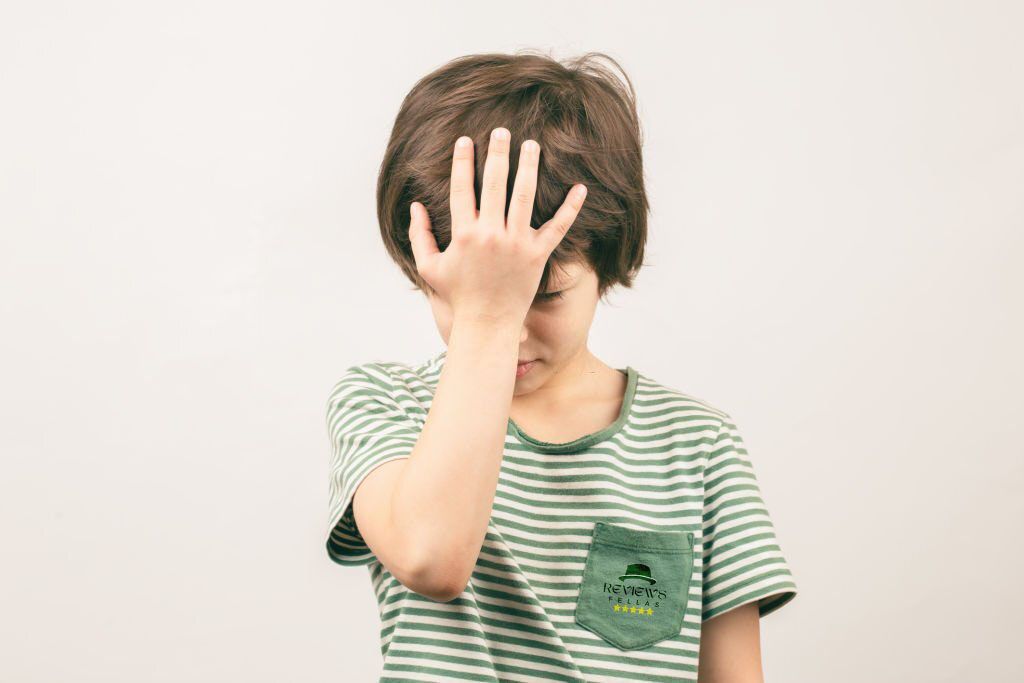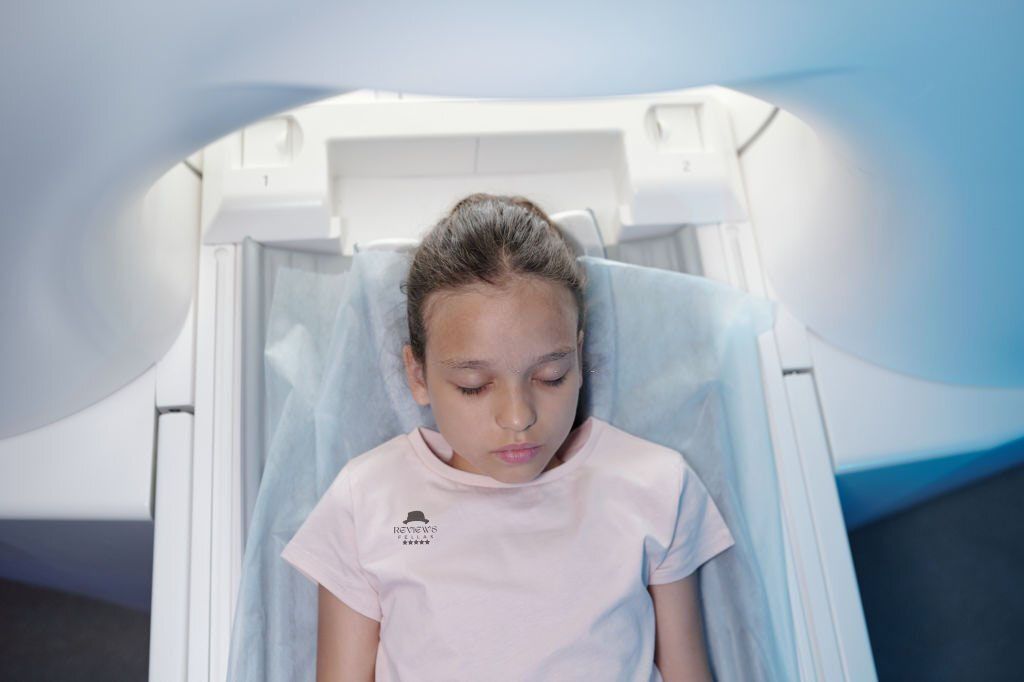This article is reviewed, corrected, and approved by: Dr. Joshua Collins M.D. | MRCP। FRCP
Childhood Alzheimer's is a devastating and heartbreaking condition that no parent should ever have to deal with or experience. It is a rare but real form of dementia that affects children under the age of 18 and is caused by genetic mutations that affect the production or clearance of tau proteins and amyloid beta in the brain.
It is characterized by the formation of plaques and tangles that damage brain cells and interfere with communication between them, leading to a variety of cognitive, behavioral, and physical changes.
What is Childhood Alzheimer's?

Childhood Alzheimer's, also known as juvenile dementia or childhood dementia. It is a rare neurodegenerative disorder that affects children under the age of 18. A range of genetic and metabolic diseases can cause it, including Sanfilippo Syndrome, infantile neuronal ceroid lipofuscinosis (INCL), and other diseases that result in brain damage.
Symptoms of this disease depend on the underlying condition but may include memory loss, confusion, language difficulties, personality changes, loss of motor skills, seizures, and more. For those diagnosed with this condition, joining an Alzheimer's support group can provide invaluable information, resources, and emotional support.
Symptoms of Childhood Alzheimer's

Here are the most common symptoms of childhood Alzheimer's
- Loss of memory
- Difficulty in problem-solving and decision-making
- Behavioral changes
- Communication difficulties
- Difficulty in performing everyday tasks
- Lack of interest in activities
- Difficulty in recognizing familiar people and objects
- Cognitive and physical capacities decline over time
What Causes it?
Genetic mutations that impair the production or clearance of amyloid plaques and tau proteins in the brain are responsible for causing Childhood Alzheimer's. These mutations can either be inherited or develop spontaneously.
Some of the most common causes of childhood Alzheimer's are Down Syndrome, Sanfilippo Syndrome, and baby Alzheimer's.
Sanfilippo Syndrome prognosis is a severe and rare mutation in one of four genes that can lead to a genetic disorder. The body is unable to break down specific carbohydrates, resulting in a gradual decline in cognitive and physical abilities and eventually leading to death.
The cure for this disorder is still unknown, and treatment options are limited to symptom management and slowing its progression.
Baby Alzheimer's is an uncommon kind of early-onset Alzheimer's disease that affects children aged two to four years old. It is caused by a Presenilin-1 gene mutation (PSEN1). It affects the production of amyloid beta protein. Treatment options are limited and include medication, lifestyle changes, and joining an Alzheimer's support group to help manage symptoms.-
Other causes of Childhood Alzheimer's are:
- Tay Sachs disease
- Batten disease (neuronal ceroid lipofuscinosis)
- Alexander disease
- Sanfilippo syndrome (Mucopolysaccharidosis type III)
- Canavan disease
- Niemann-Pick disease type C (NPC)
How is it Diagnosed?

When it comes to diagnosing Childhood Alzheimer's, doctors will typically look for signs of cognitive decline and other neurological symptoms. Diagnosis begins with a physical examination and an assessment of the child's medical history and family history.
If a physician suspects that the child may have Alzheimer's, additional tests such as neuropsychological testing and imaging studies may be performed. A genetic test may also be performed to look for mutations associated with the disease.
In some cases, such as Sanfilippo Syndrome, a doctor may also check for mutations in the genes associated with this type of dementia. Parents and caregivers can also help diagnose the condition by noting changes in the child's behavior.
Some common early warning signs include difficulty concentrating, difficulty following instructions, confusion, memory loss, language problems, and difficulty problem-solving.
If a parent or caregiver is worried about their child's development, they can contact a local Alzheimer's support group or speak to their doctor for more information.
How Can it be Treated?

Currently, there is no cure for Childhood Alzheimer's, and treatments are aimed at managing symptoms. This can include medications that help with memory, communication, and behavior; physical, ABA, occupational, and speech therapy; as well as an Alzheimer's support group to provide emotional support.
As with any condition, it is important to seek professional medical advice when considering treatment options for a child diagnosed with Childhood Alzheimer's or Childhood Dementia.
What Are The Long-term Effects?
The long-term effects of Childhood Alzheimer's can differ widely based on the severity and type of the disease. Symptoms typically involve memory loss, communication difficulties, altered behavior, and seizures.
An alternative, optimized version could be: "Childhood Alzheimer's can lead to a variety of long-term effects, which vary depending on the type and severity of the disease. Common symptoms include memory loss, communication difficulties, changes in behavior, and seizures.
In some cases, patients may develop dementia or Sanfilippo Syndrome, a form of Childhood Dementia. The prognosis for these conditions is usually not favorable, and the majority of affected children will require lifetime care.
Remember that each child's journey with Childhood Alzheimer's is unique, and their experiences will vary significantly. It is important to reach out for support from an Alzheimer's support group or from other parents who have gone through similar experiences. By connecting with other families, you can learn more about the condition and receive emotional support during this challenging time.
What is Childhood Dementia?
Childhood dementia is a rare neurological disorder that affects children's mental development, causing a decline in cognitive function, behavioral changes, and difficulty with daily activities. It can be caused by genetic mutations, environmental factors, or diseases like Sanfilippo syndrome and Baby Alzheimer's.
Memory loss, decreased judgment, behavioral issues, and difficulty communicating are some of the symptoms of infantile dementia. Though there is no known cure for this condition, symptoms can be managed with treatments like medication and psychotherapy. Early intervention is crucial for improving the child's quality of life.
Childhood Alzheimer's vs Childhood Dementia
Note that While there are some differences between Childhood Alzheimer's and Childhood Dementia, they share some similarities in terms of symptoms and impact on cognitive function.
The Bottom Line
Childhood Alzheimer's is a rare and devastating condition that affects young children, leading to significant cognitive, behavioral, and physical impairments. While there is no existing cure for this condition, early diagnosis and treatment can help to manage symptoms and improve the child's life expectancy. There is hope for improved treatments and, eventually, a cure for Childhood Alzheimer's, thanks to continuous research and breakthroughs in medical technology.
F.A.Q
Q: Alzheimer es hereditario?/ is alzheimer is hereditary?
Ans: There is no specific scientific evidence that alzheimer's is hereditary or not. There are some genetic mutations that might cause it.
Q: Childhood Alzheimer's life expectancy
Ans: It depends on the patient's condition and how they treat it in long run. On average, people with Childhood Alzheimer's have a lifespan of 15 to 30 years.
Q: What is James l west alzheimer center?
Ans: The James L. West Alzheimer Center is a specialized facility located in Texas. Offers medical care and support to people suffering from Alzheimer's disease and different kinds of dementia.


